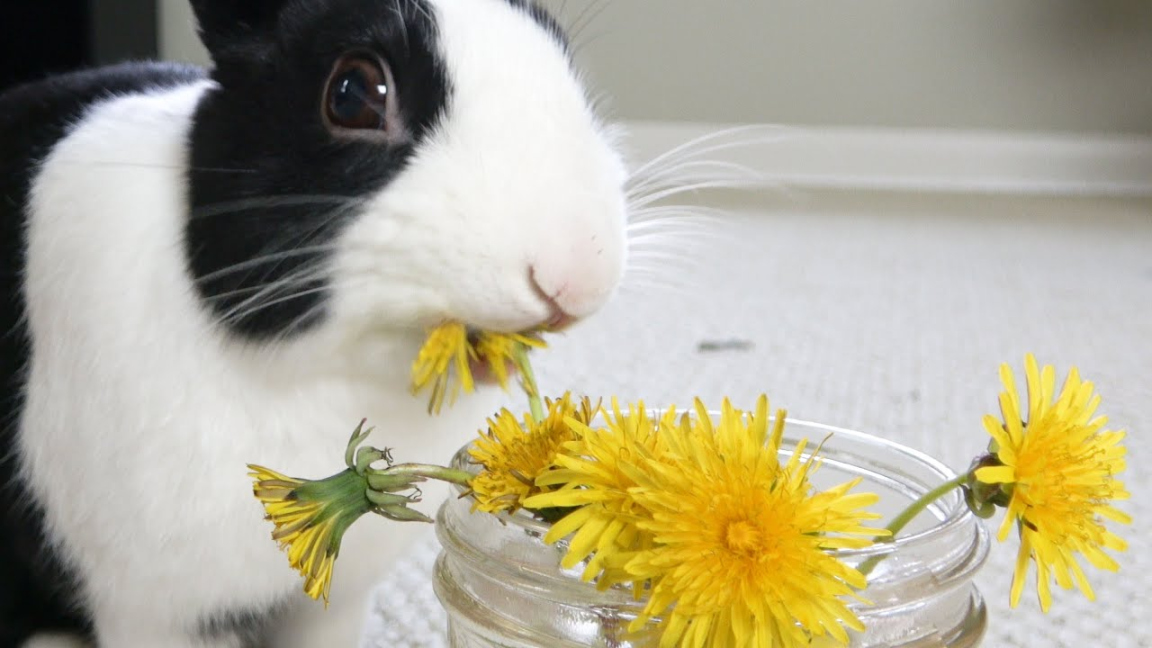Do Rabbits Eat Dandelions?
When it comes to the diet of rabbits, it is important to provide them with a variety of fresh and healthy foods. While rabbits are primarily herbivores, their diet consists mainly of hay, fresh vegetables, and some fruits. However, one common question that arises is whether rabbits can eat dandelions. Let’s explore the answer to this query and discuss the potential benefits and risks associated with feeding dandelions to rabbits.

Can Rabbits Consume Dandelions?
Yes, rabbits can eat dandelions. In fact, dandelions are considered safe and healthy for rabbits when fed in moderation. Dandelion leaves, flowers, and roots are all edible for rabbits and can be added to their diet as a tasty treat.
Rabbits enjoy the taste of dandelions, and they provide them with essential nutrients. Dandelion leaves are rich in vitamins A, C, and K, as well as minerals like calcium and iron. Additionally, dandelion leaves contain antioxidants that can support the immune system of rabbits.
Benefits of Dandelions for Rabbits
Feeding dandelions to rabbits can offer several benefits:
- Vitamin and Mineral Boost: Dandelions are packed with essential vitamins and minerals that contribute to the overall health of rabbits. These nutrients help support their immune system, maintain healthy bones, and aid in digestion.
- Hydration: Dandelions have a high water content, which can help keep rabbits hydrated. This is particularly useful during warmer months or for rabbits prone to dehydration.
- Dental Health: Chewing on dandelion leaves can promote dental health for rabbits. The fibrous texture helps wear down their constantly growing teeth, preventing dental issues.
- Enrichment and Mental Stimulation: Providing dandelions as a treat offers rabbits variety in their diet and engages their natural foraging instincts, promoting mental stimulation and overall well-being.
Potential Risks and Considerations
While dandelions are generally safe for rabbits, there are a few important considerations to keep in mind:
- Pesticide-Free: Ensure that the dandelions you feed to rabbits are free from pesticides or any other harmful chemicals. It is best to collect dandelions from an area that has not been treated with pesticides.
- Moderation: Like any treat, dandelions should be given in moderation. Too many dandelions can upset a rabbit’s digestive system and cause gastrointestinal issues such as diarrhea.
- Gradual Introduction: If you plan to introduce dandelions to your rabbit’s diet for the first time, it is advisable to do so gradually. Start with small amounts and observe how your rabbit reacts to ensure they tolerate it well.
It is always a good practice to consult with a veterinarian before making any significant changes to your rabbit’s diet or introducing new foods.
Frequently Asked Questions (FAQs)
1. Can rabbits eat dandelion flowers?
Yes, rabbits can eat dandelion flowers. The bright yellow petals are safe for rabbits to consume and can provide added nutritional benefits.
2. How often can I feed my rabbit dandelions?
Dandelions should be fed to rabbits as an occasional treat, not as a staple food. It is recommended to give them dandelions no more than a few times a week.
3. Can rabbits eat all parts of the dandelion plant?
Yes, rabbits can eat all parts of the dandelion plant, including the leaves, flowers, and roots. However, the leaves are usually the most popular choice among rabbits.
4. Are there any other plants that are safe for rabbits to eat?
Yes, there are several plants that are safe for rabbits to eat. Some examples include parsley, cilantro, basil, spinach, kale, and carrot tops. However, it is important to research each plant and introduce them gradually to ensure they are safe for your specific rabbit’s diet.
In conclusion, dandelions can be a healthy and enjoyable addition to a rabbit’s diet when given in moderation. They offer various benefits, including essential nutrients, hydration, dental health, and mental stimulation. However, it is crucial to be mindful of potential risks, such as pesticides and overfeeding. Always consult with a veterinarian to ensure the best diet for your furry friend.
Related Articles…
Copyright Notice:
All images featured on this site are sourced from the internet, copyrights belong to respective owners. Should you own any image and require it to be removed, please contact us.